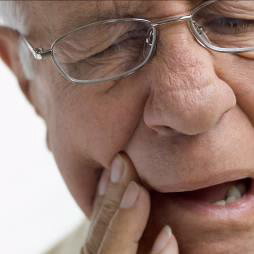FOR IMMEDIATE RELEASE
ACS News Service Weekly PressPac: January 02, 2013
Nature-inspired advance for treating sensitive teeth
“Polydopamine-Induced Tooth Remineralization”
ACS Applied Materials & Interfaces
Taking inspiration from Mother Nature, scientists are reporting an advance toward preventing the tooth sensitivity that affects millions of people around the world. Their report on development of the substance, similar to the adhesive that mussels use to attach to rocks and other surfaces in water, appears in the journal ACS Applied Materials & Interfaces.
Quan-Li Li, Chun Hung Chu and colleagues explain that about 3 out of every 4 people have teeth that are sensitive to hot, cold, sweet or sour foods and drinks. It occurs when the hard outer enamel layer on teeth and the softer underlying dentin wear away, stimulating the nerves inside. Some sugar-free gums and special toothpastes can help reduce that tooth hyper-sensitivity. However, Li and Chu cite the need for substances that rebuild both enamel and dentin at the same time. To meet that challenge, they turned to a sticky material similar to the adhesive that mussels use to adhere to surfaces. They reasoned that it could help keep minerals in contact with dentin long enough for the rebuilding process to occur.
They describe laboratory tests that involved bathing human teeth with worn-away enamel and dentin in liquid containing the sticky material and minerals. Teeth bathed in the sticky material and minerals reformed dentin and enamel. However, teeth bathed just in minerals reformed only enamel. The gooey substance “may be a simple universal technique to induce enamel and dentin remineralization simultaneously,” they concluded.
The authors acknowledge funding from NSFC RGC grant, the Outstanding Youth Fund from the Board of Education of Anhui Province and the Youth Foundation of the Anhui Provincial Natural Science Foundation.
![]()
Contact
Science Inquiries: Michael Woods, Editor, 202-872-6293
General Inquiries: Michael Bernstein, 202-872-6042

preventing sensitivity to hot, cold, sweet or sour
foods and drinks.

